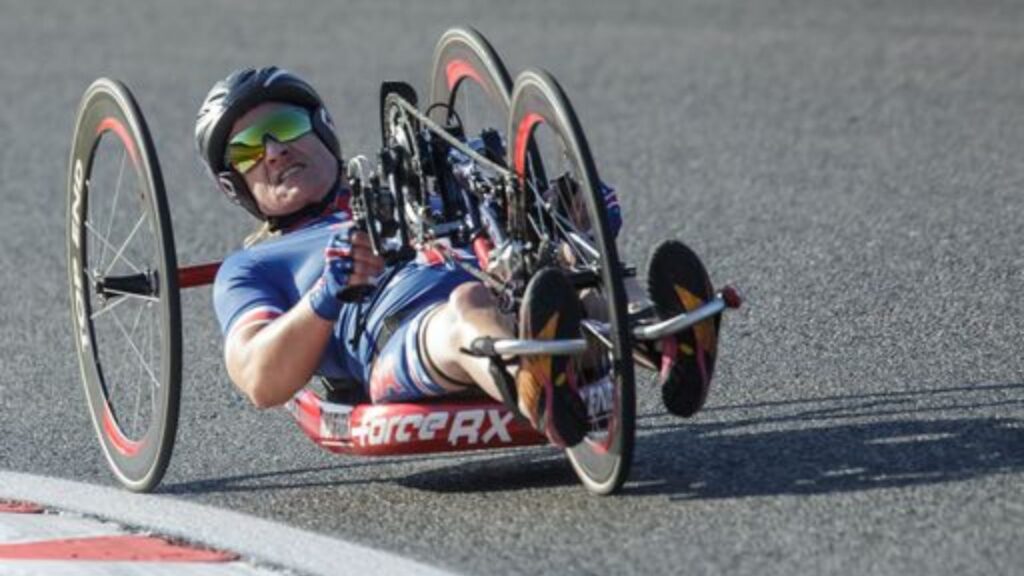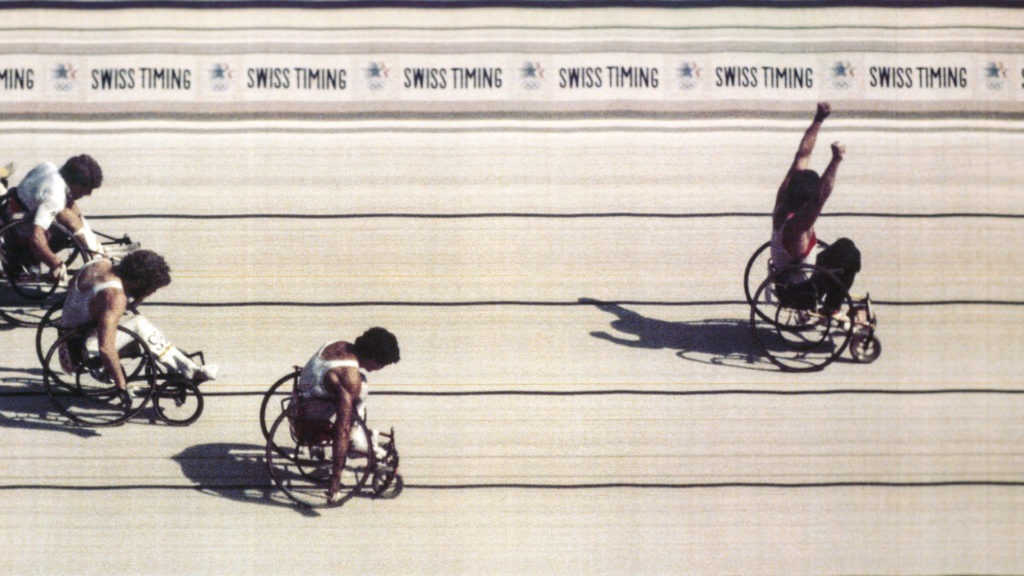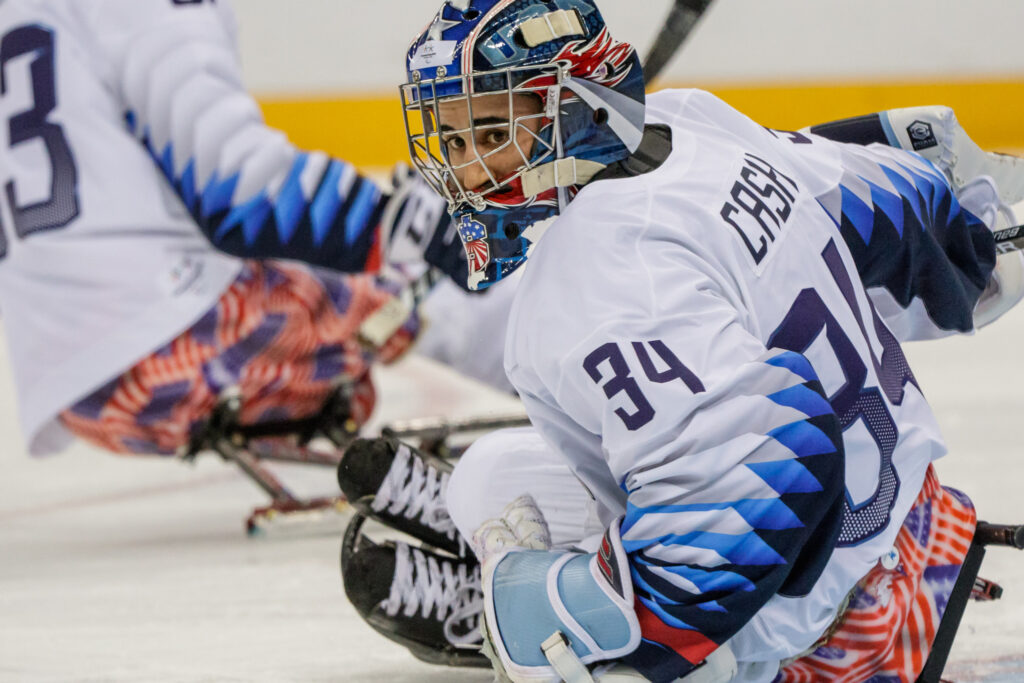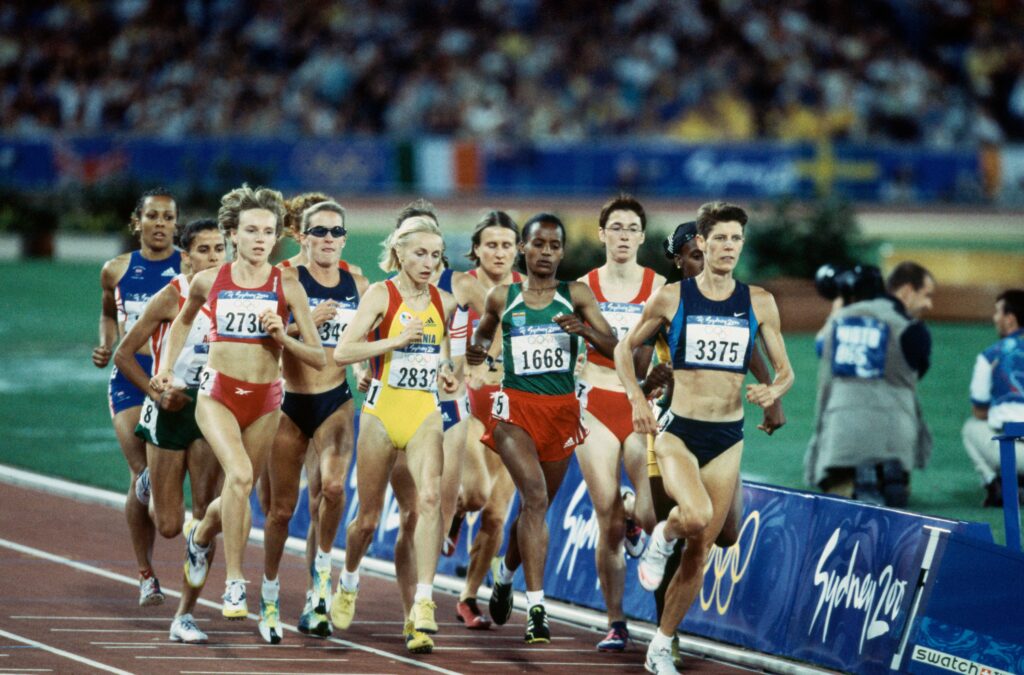Born into a swimming family, Gary Hall Jr. made a name for himself with his speed and showman-like nature.
Hall’s grandfather, Charles Keating Jr., won American national titles in the 1940s. His father, Gary Sr., competed in three Olympic Games, winning one gold medal, two silver and a bronze.
Gary Jr. was well known for his “pro-wrestling like” antics before a competition; frequently strutting onto the pool deck in patriotic red, white and blue boxing shorts and robe, shadow boxing and flexing his muscles before races.
And when the gun went off, Gary Hall Jr. could sprint with the best of them.
Hall made his Olympic debut in the Atlanta 1996 Olympic Games, where he took silver medals in the 50- and 100-meter freestyle sprints and won gold as the 4×100-meter freestyle relay set an Olympic record and the 4×100-meter medley relay set a world record.
For a brief time, though, it appeared those might be the only medals of his career.
In 1999, Hall was diagnosed with Type I diabetes. Doctors cautioned that instead of worrying about shaving tenths of seconds off his time, Hall needed to focus on taking care of his body, which required daily shots of insulin to regulate his blood sugar.
After a brief break, though, Hall was back in the water.
At the 2000 U.S. Olympic Trials, Hall set an American record in the 50-meter freestyle. And at the Sydney 2000 Olympic Games, Hall struck gold, finishing in a dead heat with American teammate Anthony Ervin in the 50-meter race; both swimmers were awarded gold medals. Hall also took home gold in the 4×100 medley relay, a silver in the 4×100 freestyle relay and a bronze in the 100-meter freestyle.
Hall’s last Olympics came at the Athens 2004 Olympic Games, where his appearance made the Halls the first father-son tandem to compete in three Olympics each. The 29-year-old Hall successfully defended his gold medal in the 50-meter freestyle and won a bronze in the 4×100-meter freestyle relay.
“They told me it couldn’t be done in ‘96, because I was too immature, and then they said in 2000 I had diabetes and it couldn’t be done,” Hall said in a postrace interview. “And this time I think they said I was too old.”












